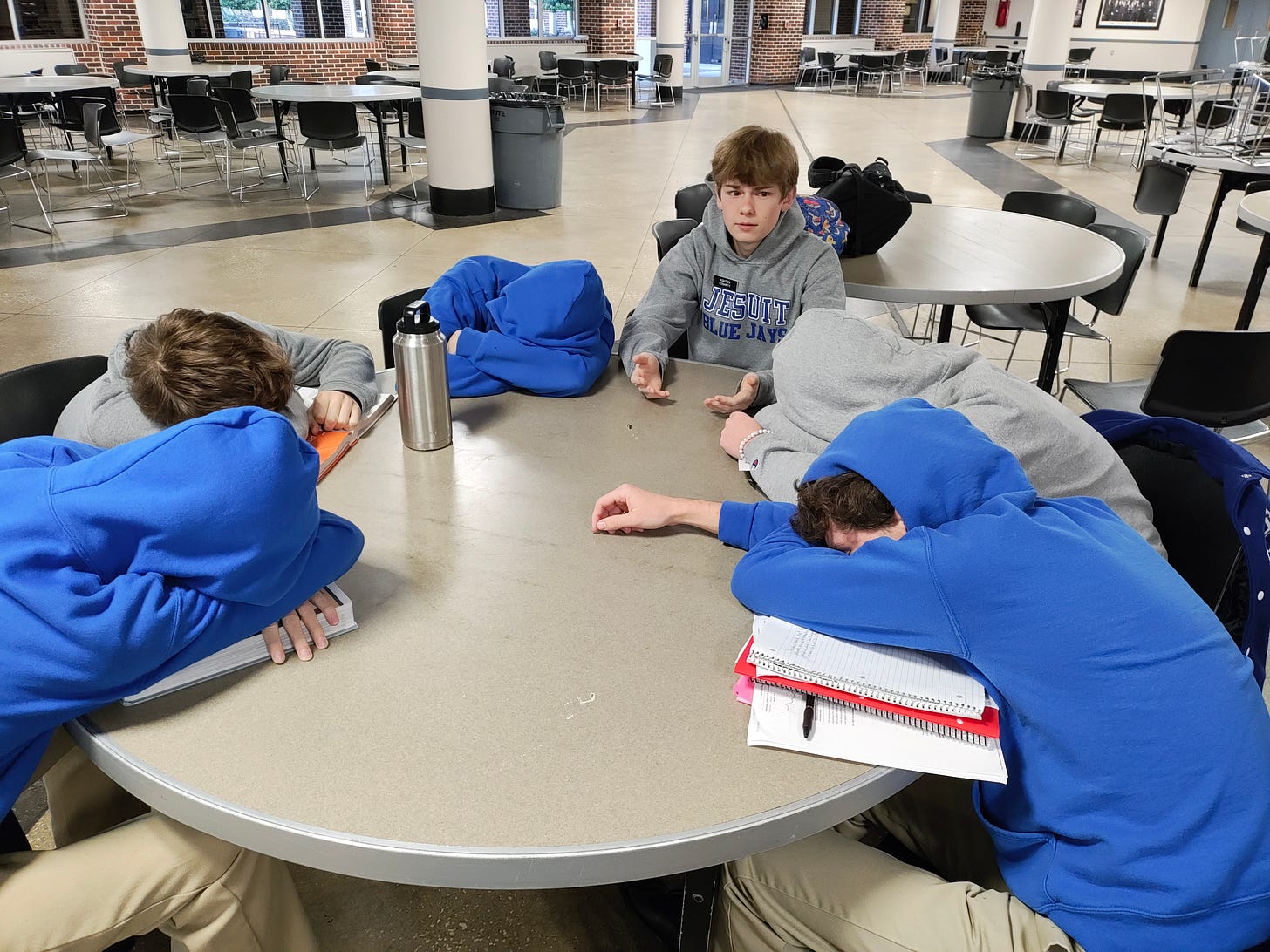Sleepy Jays: Who's To Blame?
Grant Carroll takes a deep dive behind the sleep epidemic across campus.
After getting a PH for being “out cold” in Mrs. Harper’s class, I thought to myself, “Why do I get so tired in class?” To answer this question, I took to the internet. The most glaring reason is not getting enough sleep the night before. According to many scientists, a teen needs 8-10 hours of sleep a night. Getting that much sleep is very hard to attain in the rigorous schedule of a Jesuit student.
Say you wake up at 6:30, go to school, then go to your sport practice and get out around 6:00pm. You get home to do your homework and are faced with a planner full of things to do and three Canvas assignments due that night. Just to be sure I was not alone, I conducted a quick survey of my friends: three hours of homework a night is a fair average for a Jesuit student. So now it’s 9 o’clock and you want some time to wind down after a long day. Let us suppose that
you take two hours of leisure at some point from when you get home to when you go to sleep, and before you know it, it’s already 11:00pm! Leaving time for only seven and a half hours of sleep.
These calculations are not factoring in a big test, or some other unforeseen event transpiring. One obvious answer to this chronological conondrum is to manage your time better; however, that is easier said than done. According to Cross River Therapy, the average attention span of a teenager is 30-40 minutes. It is almost impossible to do schoolwork or something of the same tune for more than 30 minutes without being distracted. The best way to combat distractions is to put your phone in another room and put on some music.
So, we’ve discussed the night-time aspect, but what about during the day? I find myself the most tired after lunch. Dr. Zumpano of the Cleveland Clinic says, “you may feel sleepier because you have an uptake of tryptophan from the protein and then an increase of serotonin.” Having some grub also makes your blood sugar levels rise, which can lead to a decrease in energy. If you’re in a class on a particularly boring day, all these factors combine for an imminent nap. That’s when danger can strike: missed notes, missed bells, and the inevitable PH.
I took to the classrooms to ask Jesuit faculty what they think of sleeping in class. When asked what he thinks of students sleeping in class, Coach Jon Orillion said, “I feel disrespected that students think video games at 3 A.M. are more invigorating than my lectures!” Mr. Babin remarked that if he sees a student sleeping, he factors in the importance of the current topic and the student’s grade when deciding how fast and in what way to wake the sleeping Jay.
Personally, I like this approach: if a student can keep an A in the class while taking a few naps, why not let him get some shut eye. But until then, Blue Jays need to keep their heads up in class.


